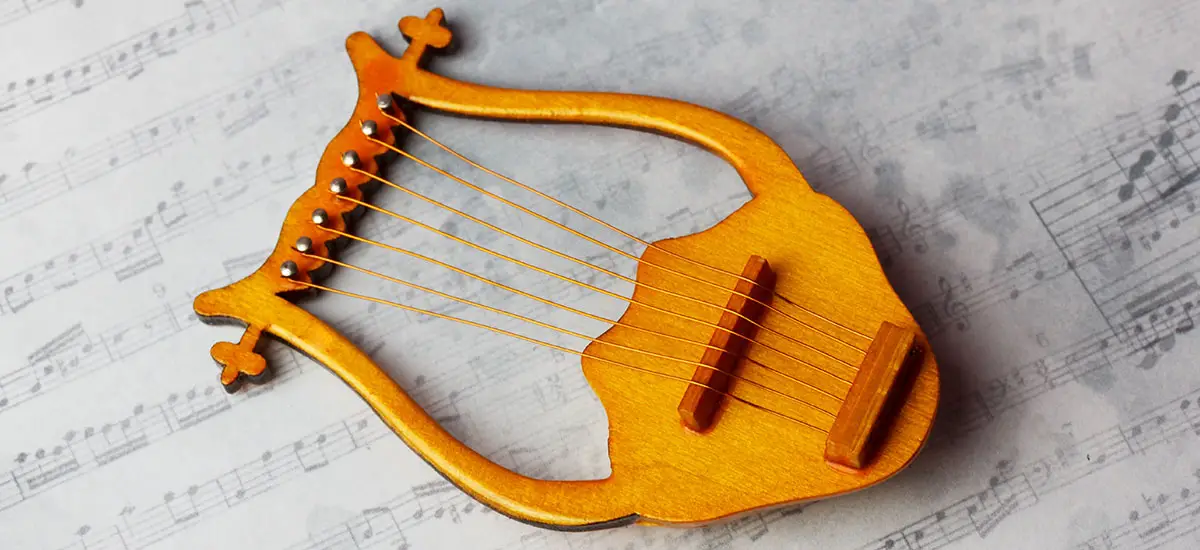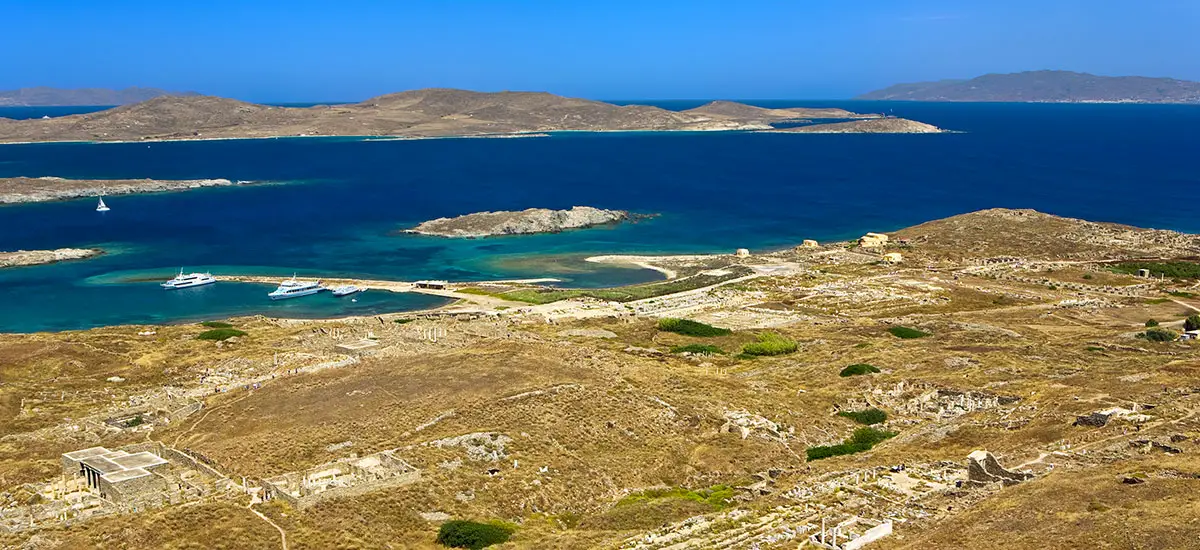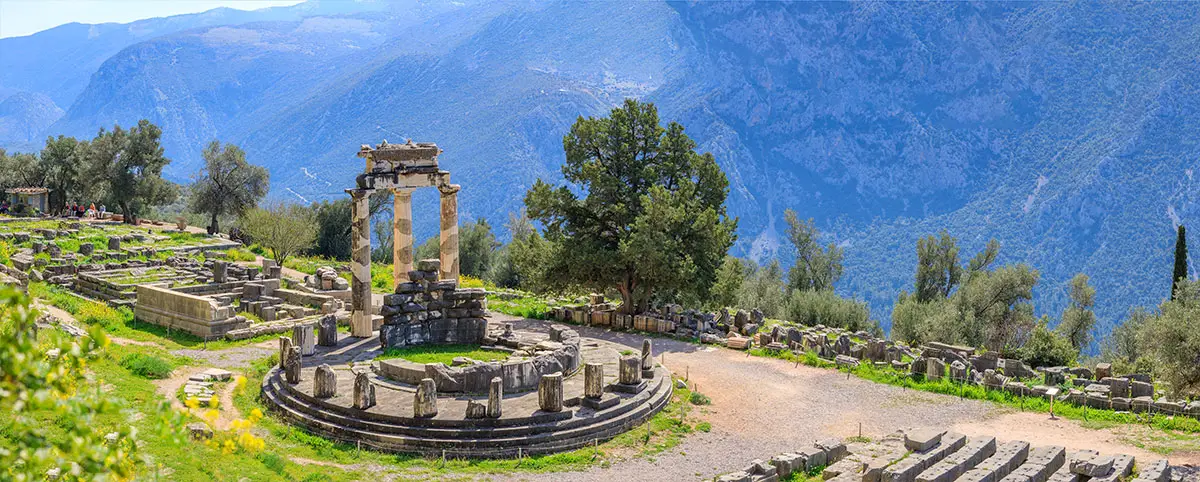Apollo is one of the most important Greek gods, and has a very interesting personality. He has conflicting traits, and in this article we are going to look at what is he is personality is like.
The personality of Apollo is wise, honorable, and calm. He is a brave warrior with a clear sense of right and wrong. Protective of his children, he is vengeful and cruel towards his enemies. An overachiever, he is a brilliant musician. Apollo is a charming, passionate and jealous lover, physically beautiful, but vain.
He is one of the most important of the Greek gods, with temples dedicated to him throughout parts of Greece. He is the god of prophecy, the sun & light, art & especially music, and archery. Apollo taught men the art of medicine.
Apollo is Physically Beautiful but Very Vain
The most beautiful of all gods in appearance, he is known for his golden hair and athletic physique, however he is the vainest of all the Greek gods.

Apollo’s Special Powers
Apollo is an immortal being, like all the Greek gods of Mount Olympus. His special abilities include the ability to see the future, control light, as well as heal and bring disease. When in battle, Apollo is a skilled warrior whose weapon of choice is the bow and arrow. He is a strong advocate for law and order, and can be vengeful and cruel towards his enemies, but never unreasonable.
Apollo’s Parents are the Greek gods Zeus and Leto
Apollo and his twin sister Artemis were conceived when Leto accidentally caught the eye of Zeus. She then searched for a place to give birth after being shunned by Hera who was jealous. eventually finding the island the island of Delos, where Apollo was born.
Zeus
He presided over all as the god of the sky, and god of thunder. Zeus is the king of the gods of Mount Olympus in Greek mythology. He is represented by the planet Jupiter, and his symbols are the thunderbolt, eagle, bull, and oak tree. You can read more about Zeus here.
Leto
Leto is the mother of Apollo and his twin sister, the goddess Artemis. Less is known of her, though she is the goddess of motherhood. She is the daughter of the Titans Coeus and Phoebe, and the sister of Asteria. While Apollo rarely gets upset, any insult towards Leto he finds deeply offensive.
Apollo and Artemis
When Zeus and Leto gave birth to Apollo, he had a twin sister, named Artemis. She is the goddess of the hunting, wilderness, animals, and fertility. Born nine days apart, some traditions say that Artemis assisted her mother in giving birth to Apollo, making her the goddess of childbirth.
Apollo Greek God Symbols
Apollo has been worshipped for generations, and many symbols have become associated with the Greek god and his accomplishments and characteristics. These symbols include the lyre, the bow and arrow, the raven, rays of light radiating from his head, and a wreath of laurel.

The Lyre
Apollo had a magical lyre that he received from Hermes. Apollo was known for delighting Olympus with tunes played on his golden lyre, and he is the god of music. This was especially the case when he was in a good mood, and surrounded by others who were on his good side.
The Bow and Arrow
Used by Apollo in battle, including when he shot Python to claim the shrine of Delphi as his. Apollo’s strong work ethic is shown in his excellence with his weapon of choice.
The Raven
Before Apollo all ravens where white birds, but when he learned of the infidelity of his lover Coronis, he became enraged and scorched the wings of all ravens. Despite being beautiful and charming, Apollo struggled in romance, and can become very jealous.
The Rays of Light that Radiate from Apollo’s Head
This symbolizes that he is the god of the sun. In Greek mythology each morning Apollo rides a flaming golden chariot across the sky to bring daylight to the world. In the evening his twin Atermis rides her chariot to bring darkness.
Apollo and the Wreath of Laurel Branch
The laurel wreath is a symbol of victory, and used by the winners of sporting events in Greek and Roman times. When Apollo fell in love with Daphne she was cursed by Eros to dislike love. To avoid Apollo’s chasing she had her father help her turn into a laurel tree in order to escape Apollo. The laurel wreath of Apollo symbolizes his love of Daphne, as well as suggests the rays of light around his head, as well as his representation of the heroes of ancient Greek sports.
Apollo Greek God Roman Name
As the influence of Greek culture took form in Roman culture, much of their deities continued on in form, but took on new names. Apollo was an exception to this trend, as he continued to be known as Apollo in both ancient Greece as well as Ancient Rome.
Apollo and Daphne
Daphne was a beautiful mortal girl, and the first love of Apollo’s life, though she never returned his affections, contributing to his loneliness and jealousy. The story of Apollo and Daphne began when Apollo and Eros began feuding after Apollo insulted Eros’ importance. Eros climbed Mt Parnassus and unleashed two arrows. One was sharp and gold-tipped and struck Apollo, inflaming his love for Daphne. The other arrow was blunt and lead-tipped, and struck Daphne, causing her to feel an intense aversion to love and romance. Because of this she rejected Apollo and his constant attempts of winning her over.
He continued to relentlessly pursue her, and in order to escape from his pursuits, she asked for her fathers help. Her father, named Peneus transformed her into a laurel plant. Heart-broken, Apollo adopted the laurel tree as his symbol to commemorate her.
Apollo and Hyacinthus
Hyacinthus was a young spartan athlete, the best friend and lover of Apollo. When the two of them were practicing discus, Apollo threw the discus into the clouds, and Hyacinthus ran after to catch it. The discus struck Hyacinthus in the head, killing him. Apollo held him in his arms as he died, desperately using his powers of medicine to heal the youth, but to no avail. To honor his best friend and lover, Apollo made a flower spring up from Hyacinthus’s blood.
Apollo and Cassandra
Like Daphne, Cassandra was also a mortal named with whom Apollo fell in love, who did not reciprocate his feelings. She was the daughter of Priam, the last king of Troy. Apollo promised her the power of prophecy if she would comply with his desires. Cassandra accepted the proposal and received the gift, but then refused to reciprocate his romantic advances. He sought revenge by ordaining that no one would ever believe her prophecies. She made many accurate predictions, such as the fall of Troy, but she was ignored.
Important Temples of Apollo
Worship of Apollo peaked in the 4th century BC, and temples were constructed in his honour throughout the ancient Greek world. Along the roads going to and from the temples of Apollo there were performing musicians These artists were inspired by the sacred energy of the nearby temples, and would play the lyre, a popular stringed instrument in ancient Greece, as well as sing and recite poetry.

Delos the Birthplace of Apollo
Delos is the birthplace of Apollo, and one of the most important places of Apollo worship. In ancient times it was a bustling community, and the capital of the Greek alliance, which formed as a coalition to deal with the neighbouring and antagonistic Persian empire. It was prohibited from being born or dyeing in Delos, with all births and deaths conducted on a nearby island. The temple of Apollo featured a large statue of the god. Peasants and monarchs alike would visit the temple to receive insights into their future course of actions.
The Delia was a festival held every five years in Delos to pay homage to Apollo. It had horse races and music performances and classes and competitions.
The Temple of Apollo at Didyma
Located in modern day Turkey, the temple of Apollo at Didyma was the third largest built in ancient Greece. Its’s construction was directed by Alexander the Great, king of Macedon. It’s design featured special rooms called Vestibules where entrance was forbidden to all but the priests and the female prophets of Apollo. They would go into a trance state and channel divine knowledge with incomprehensible words, which would be translated by the priests.
The main area of the temple was an outdoor sanctuary in the center of temple, which is only accessible by walking through a long corridor and descending to the ground floor. It was bathed in sunlight and contained a sacred spring.

Apollo and the Oracle of Delphi
The oracle of Apollo at Delphi dates back to 1400 BC, and was about 100 miles northwest of Athens. It was originally a sacred place to Gaea, mother goddess of the earth, and was guarded by her son Python, a serpent. It was the most important shrine Greece, and was a place for visitors from throughout Greece and beyond to consult with the priestess, who would provide guidance on their course of their life, and their future actions. It was lavishly decorated with gold, bronze, and ivory, and a beautiful sphynx statue.
After a while Apollo grew tired of his home of Delos, and started to roam Greece, looking for a place to build a temple. Apollo slew Python and took possession of the oracle. Priestesses who served Apollo there were called the “Pythia,” named in honor of the vanquished serpent. From there he began transmitting his teachings to worshipers. His priestesses would conduct rituals where they would purify themselves with water from the Castalian sea, and then descend into a special chamber deep in the temple. Intoxicating fumes would fill the chamber. The priestesses would enter an altered state of consciousness from the psychotropic effect of the gas, channeling the teachings of Apollo. The insights these priestesses provided were highly valued in Greek society, and many including politicians would often pay large sums of money for their guidance.
Recommended Reading
If you’d like to continue researching the Apollo, Greek mythology, or any of the other topics discussed on this website, you can see which books I recommend by clicking here.

